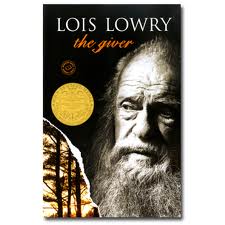 How do you get teens thinking about fundamental issues of life? Experience shows that plain old rhetoric does little good; children (and, as a matter of fact, every one of us) should put their minds to the problem in question and arrive at a viewpoint as a result of conscious choice. Lois Lowry’s novel The Giver provides much food for thought in this respect.
How do you get teens thinking about fundamental issues of life? Experience shows that plain old rhetoric does little good; children (and, as a matter of fact, every one of us) should put their minds to the problem in question and arrive at a viewpoint as a result of conscious choice. Lois Lowry’s novel The Giver provides much food for thought in this respect.
Plot Overview
The protagonist, Jonas, is a twelve-year-old boy who lives in a society of absolute peace and quiet. Horrors of warfare, disease and privations are things long forgotten by everyone except the Receiver of Memory who stores knowledge of the days past in all its variety in case the Community has to make a decision for which it lacks experience.
As it turns out, memories of the Community members are limited to everyday life; they are not aware of what came before. Neither do they know natural beauty and fine art; furthermore, their lives are emotionally barren because strong feelings are regarded as a threat to stability and prevented. The Community advisors administer all civil and even private matters (from appointing to jobs to choosing spouses) to keep people from wrong choices and upsetting experience.
As Jonas is appointed the Receiver and gets the knowledge from his predecessor (who is now The Giver), he becomes restless with confusion; and when he learns about the true nature of some realia, he cannot bear to let the Community remain the way it is. He plans to escape to the world outside (the Elsewhere), while the Giver intends to spread the memories among the citizens and see to it that they are not crushed by the overwhelming knowledge.
Living Consciously as a Key to Freedom
Although the book became an object of controversy and debate (on the pretext that it contains implications and themes too unsettling for children aged 8-12), it is definitely worth reading. The story is skillfully narrated and captivating, and the subject matter is more than relevant to children: what is freedom? The author dwells upon numerous aspects of this issue:
- Is freedom a means of creation and a vehicle for progress, or does it lead to chaos and destruction?
- Is turning a blind eye to painful experience a sound way to deal with sorrows of life?
- Can we really sacrifice individuality to eliminate the differences which provoke conflicts among people?
- Should the authorities impose their control over people’s deeds and thoughts for the sake of order, or is it the dead end of human society?
These questions are undoubtedly difficult (and not only for teens, by the way); but ignoring such ‘adult topics’ serves only to bring up naïve and helpless human beings, just like it was done in the community described in the novel. The Giver is, in fact, a good reminder for parents and teachers of what a wise adult should be – a Giver of knowledge who helps the young handle troubling experiences by building up strength of mind, and not by hushing up awkward or unpleasant issues.